[ad_1]

Losing without any blame game or excuses is a sign of excellence. | Photo Credit: Special Arrangement
It’s hard to remember this in the medal-hunting frenzy of the Olympic Games, but sometimes you can win even when you’re losing.
On the last day of the Paris Games, Kinzang Lhamo was the last person to cross the finishing line of the women’s marathon, nearly an hour and a half behind the winner. As she crossed the line, the spectators rose to cheer her. Lhamo, the only woman in Bhutan’s three-member team who was participating in her first Olympics, as noted in a media report, personified the saying of Pierre de Coubertin, the father of modern Olympics, when he said that the important thing is “not to win but to participate”.
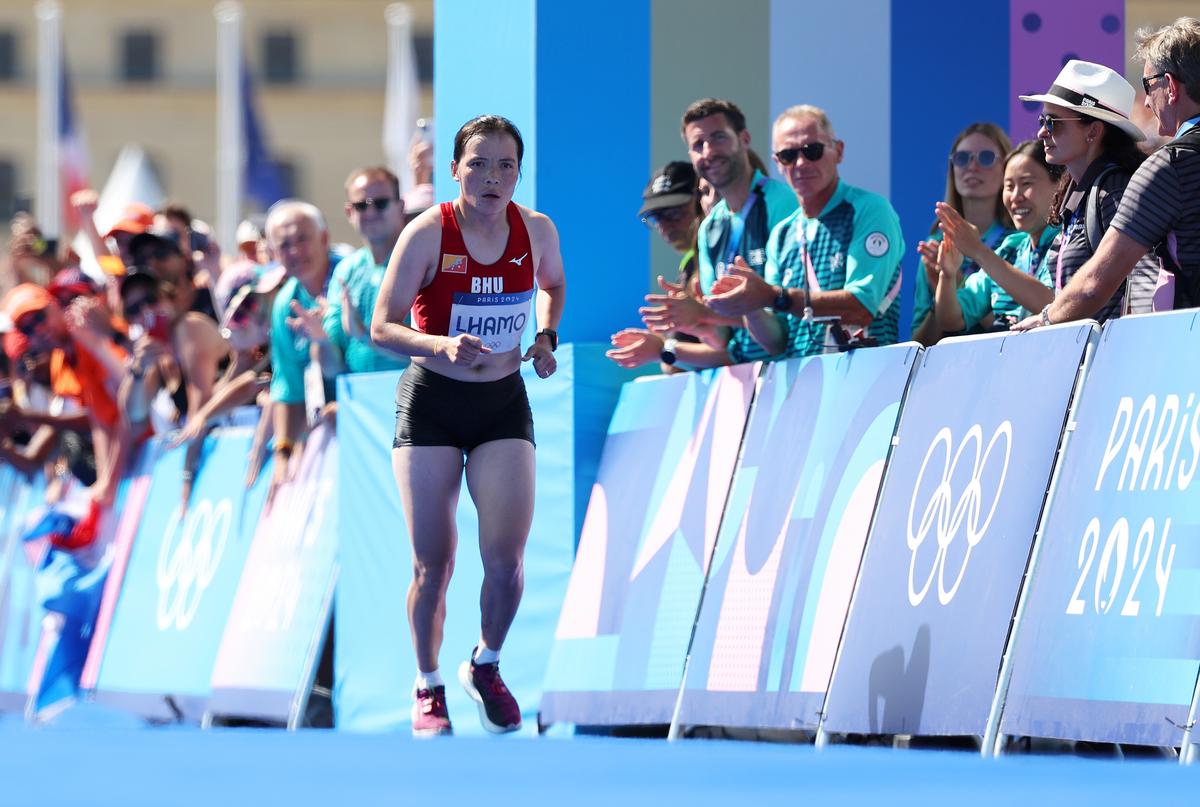
Kinzang Lhamo of Team Bhutan is cheered by spectators during the women’s marathon at the 2024 Paris Olympics. | Photo Credit: Getty Images
It’s hard to remember this and not get frustrated by accidents – dropping the baton in a relay, scoring on the same side, or hitting the crossbar and crotch while attempting a pole vault.
The agony of a fourth-place finisher who narrowly missed a podium finish is also clearly visible on television. But there are fourth-place finishers, and then there are last-place finishers. As pop philosopher ABBA sang: The winner takes everything, the loser stands small next to the winner, this is his destiny,
I understand that feeling all too well. I was the boy who would always finish behind everyone else in school games, even in sack races or three-legged races. When we played cricket during vacations, I was always the last boy to be picked for any team. And for fear of missing a catch and letting the team down, I would silently pray that I would be sent to a part of the field where no ball would ever come.
No excuses
Now imagine letting your country down in front of millions of people. When Australia’s Rachael “Regan” Gunn became the talk of the town on social media after her performance in the new breaking category at the Paris Olympics, I laughed like everyone else, but I was also embarrassed. It must sting to have the world’s eyes on you, mocking your moves, giving them names like kangaroo hopping, crab walk and chin-grabbing twists. When Regan was seen falling to the ground, users happily shared clips of Madhuri Dixit writhing on the ground in an old Bollywood film.
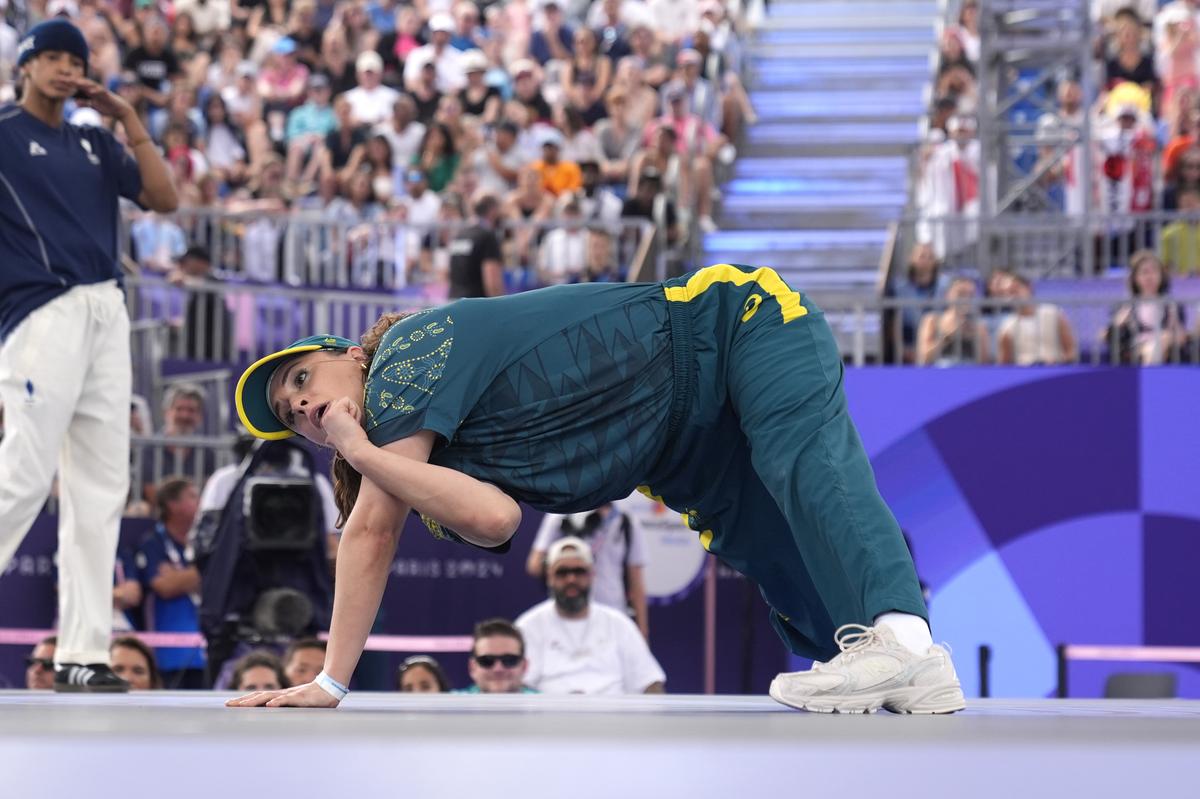
Australia’s Rachael Gunn competes in the round robin battle for the breaking competition at the 2024 Paris Olympics. | Photo credit: AP
Gunn lost all three of her round-robin bouts with a score of 18-0, failing to get a single vote from the judges. The trolling was so intense that the World DanceSport Federation offered her mental health support.
But Gunn didn’t complain about anything. She was a real athlete. She simply said, “All my moves are original. Sometimes it impresses the judges, and sometimes it doesn’t. I do my job.” She also appeared at the closing ceremony, smiling and swaying, being lifted up on the shoulders of a smiling teammate. She looked like she was having the best time of her life. It felt like a real high.
This doesn’t mean that a big country like India shouldn’t perform well at the Olympics. It definitely doesn’t. But losing without any blame game and excuses is also a sign of class. When Rafael Nadal lost to Novak Djokovic in straight sets at the Olympics, he didn’t blame anything or anyone. He simply said, “I come here, I try my best, I play.” Of course, unlike Regan, Nadal already has two Olympic golds, leaving him with nothing left to prove. But still, not everyone, experienced or novice, can accept defeat with such dignity. It’s a skill worth learning.
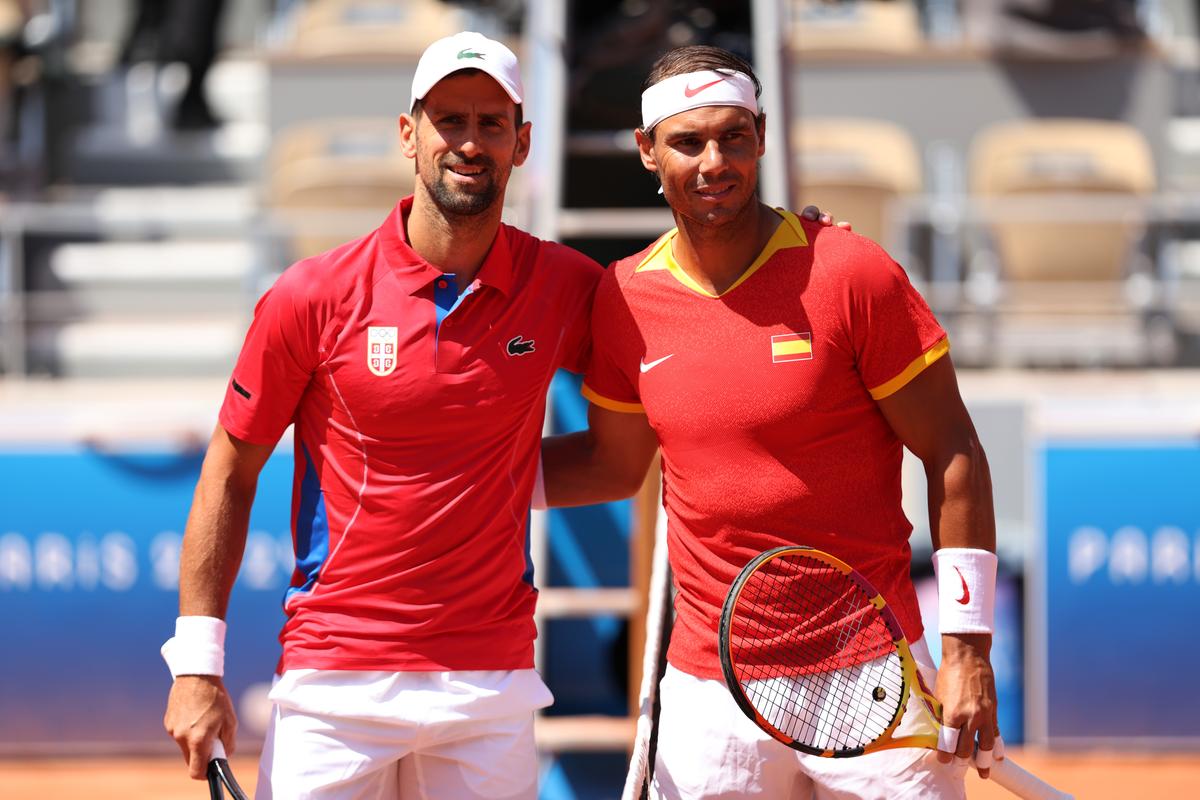
Tennis greats Novak Djokovic (left) and Rafael Nadal before their match at the 2024 Paris Olympics. | Photo credit: Getty Images
Empathy is hard
It is also important to learn how to support the loser. It is easy to congratulate the winner, but difficult to show sympathy for the loser. When wrestler Vinesh Phogat was disqualified before winning a medal, Prime Minister Narendra Modi showed sympathy by tweeting: “Come back stronger! We are all praying for you.” But MP Hema Malini was less sympathetic when she said she was sorry, but added: “I wish she loses 100 grams of weight quickly. But you won’t get anything right now (But now she will get nothing).” She appeared tone-deaf in contrast to Phogat’s fellow Olympian Neeraj Chopra, who said people forget losers but, “I hope whether she gets a medal or not, people will not forget what she did for her country”.
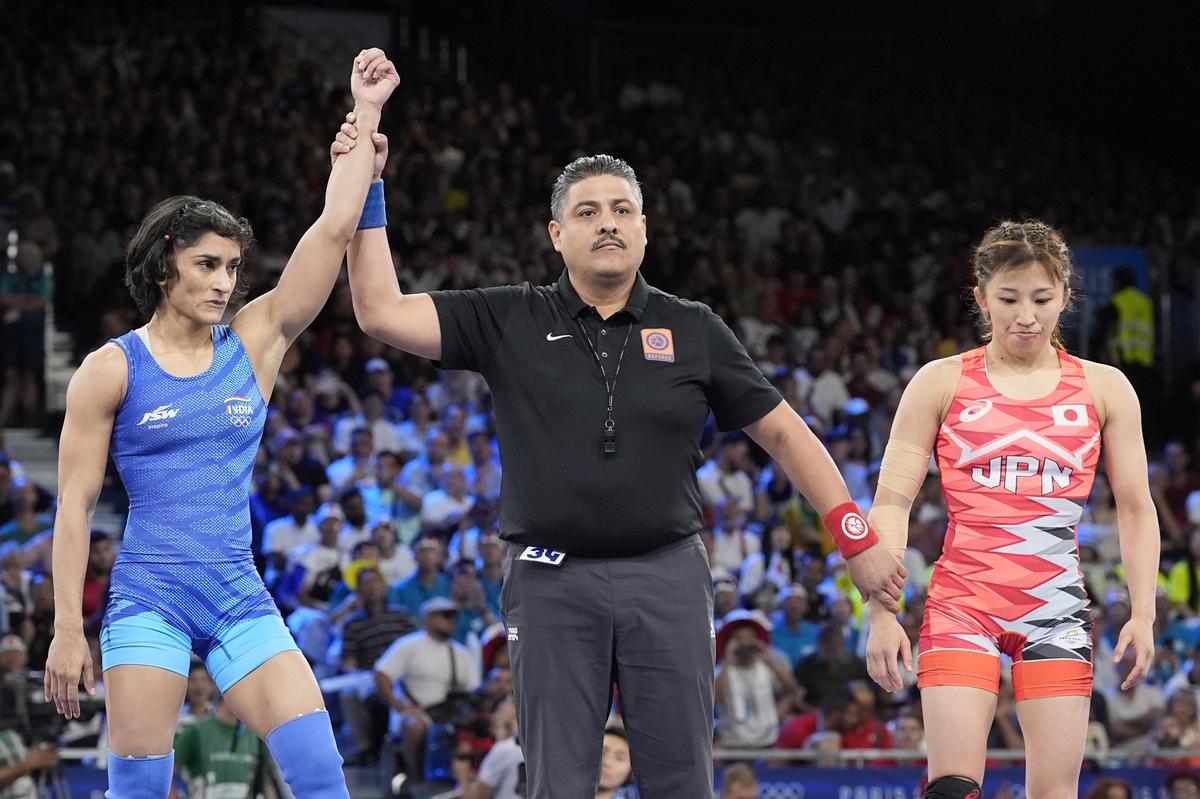
Wrestler Vinesh Phogat (left) after her win against Japan’s Yui Susaki at the 2024 Paris Olympics. | Photo credit: AP
The real winner, however, was Chopra’s mother Saroj Devi, who brushed aside the disappointment of her son’s silver medal and Pakistan’s Arshad Nadeem winning the gold medal by saying that Nadeem was like a son to her. Nadeem’s mother Razia Parveen replied: “Winning and losing is part of the game, but they are like brothers.”
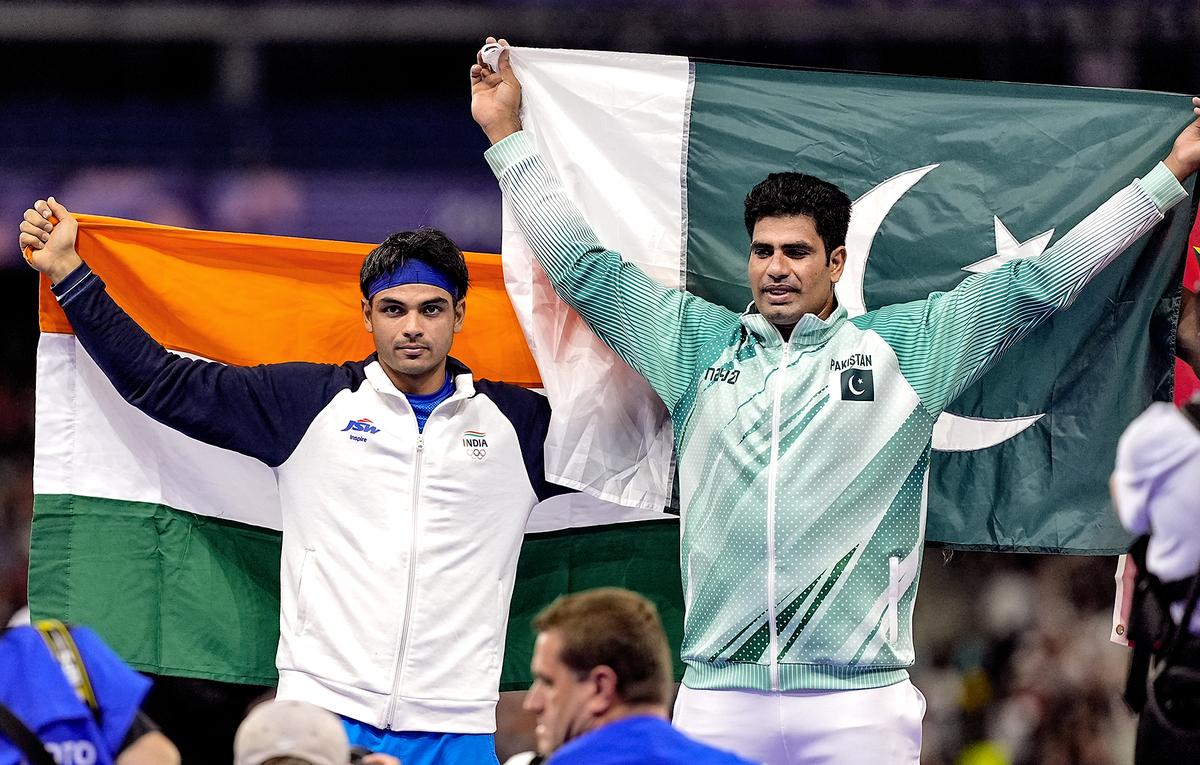
India’s Neeraj Chopra (left) and Pakistan’s Arshad Nadeem celebrate after the final of the men’s javelin throw event at the 2024 Paris Olympics. | Photo credit: PTI
We are taught from the very beginning how to win, but no one teaches us how to lose, even though in life there are often more losses than wins. Losing gracefully is also the mark of a true champion.
Now I wish someone had told me this when I was competing in the sack race.
The columnist is the author of ‘Don’t Let Him Know’, and likes to make his opinions known to everyone, whether he is asked or not.
[ad_2]
Source link